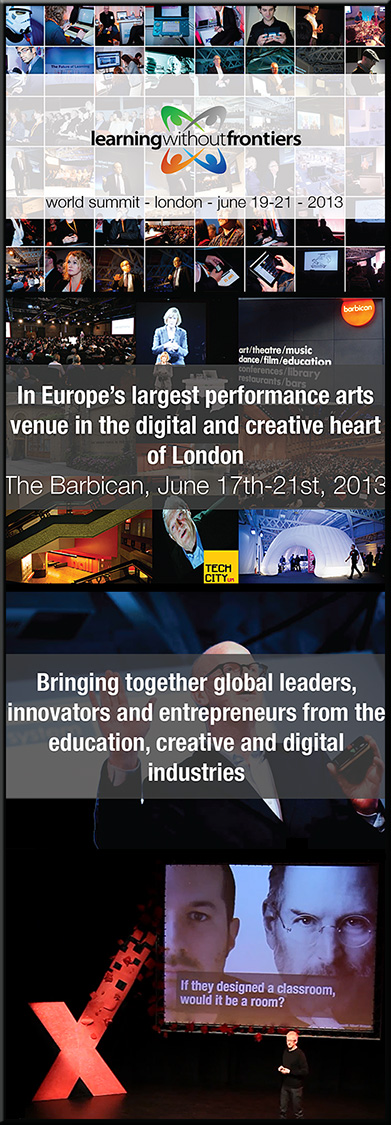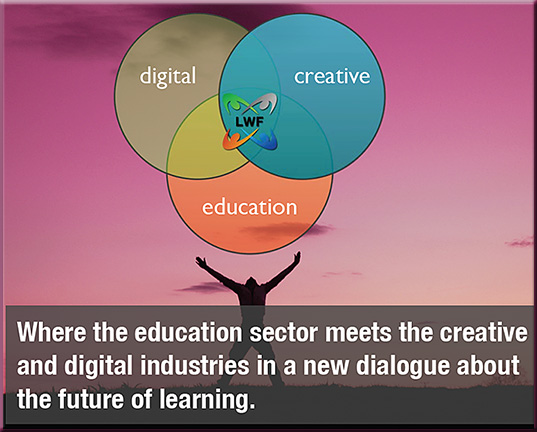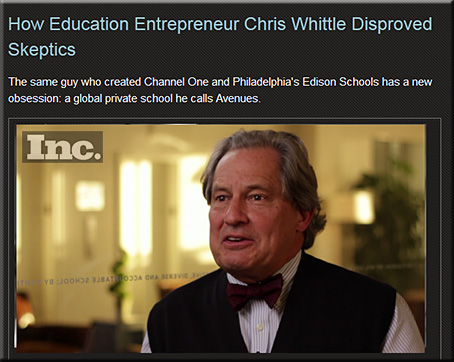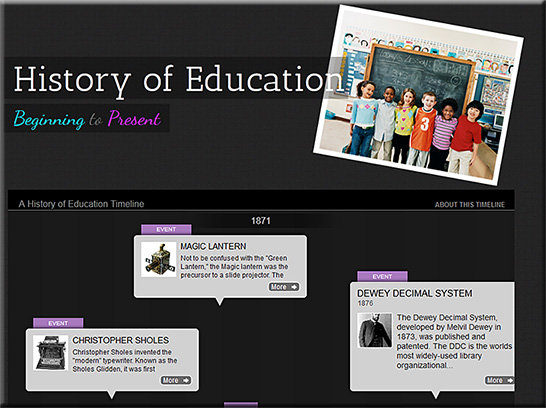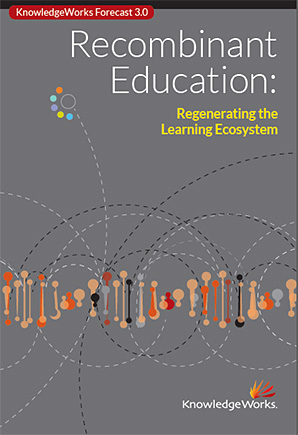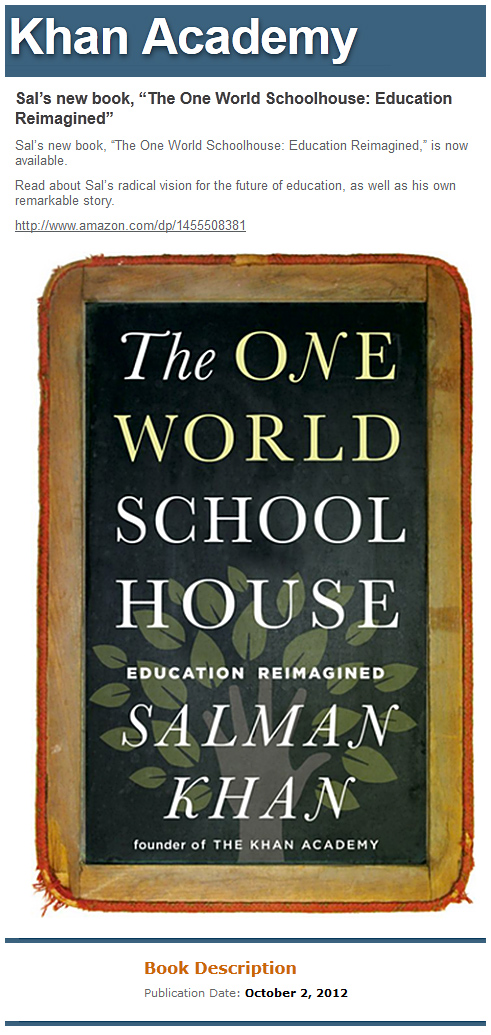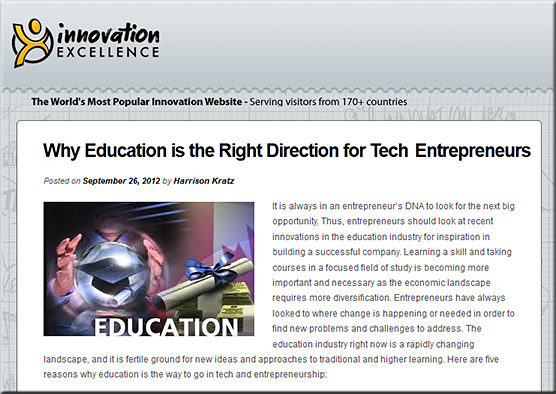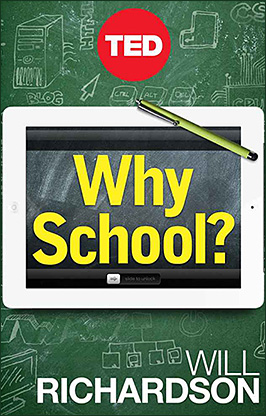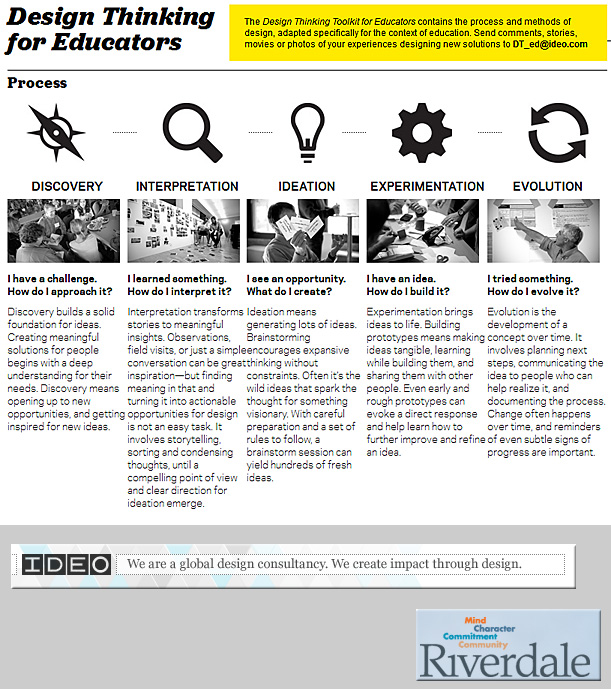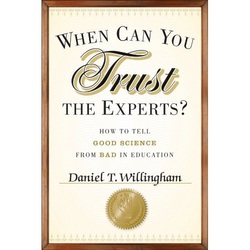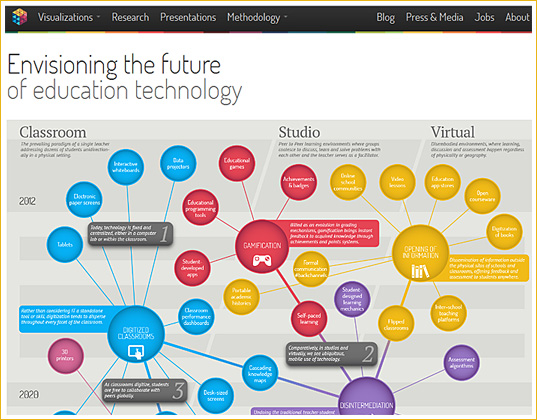The Complete Parent’s List of Education Hashtags on Twitter — from onlinecollege.org
Excerpt:
As a parent, it’s important to be a part of the discussion about education. Informed parents can make a difference, not just in the lives of their own children, but in schools, policy, and more. You can stay in the loop and contribute your opinion by taking part in these chats and using these hashtags. Check out our list, and you’ll find more than 30 of the most relevant and useful hashtags for parents interested in education today.
10 College Business Incubators We’re Most Excited About — from bestcollegesonline.com
Excerpt:
College campuses are ripe with innovation, as students grow through education and experimentation in school. To help foster this innovation, many colleges and universities have opened business incubators, helping students and others in their community to help make their innovative dreams a reality. Whether they’re offering tricked-out labs or incredible funding opportunities, these incubators offer a great opportunity for students who are smart (and lucky!) enough to participate. Follow along as we explore 10 of the most exciting college business incubators around today, and be sure to share your own favorites in the comments.
The 10 Biggest Breakthroughs in the Science of Learning — from Online PHD Programs
Excerpt:
When it comes to human organs, none is quite so mysterious as the brain. For centuries, humans have had numerous misconceptions and misunderstandings about how the organ works, grows, and shapes our ability to learn and develop. While we still have a long way to go before we truly unravel all the mysteries the brain has to offer, scientists have been making some major breakthroughs that have gone a long way in explaining both how the brain functions and how we use it to organize, recall, and acquire new information. Here, we list just a few of the biggest and most impactful of these breakthroughs that have contributed to our understanding of the science of learning.
10 BYOD Classroom Experiments (and What We’ve Learned From Them So Far)” — from onlineuniversities.com
Excerpt:
With budgets tight, many schools are hoping to bring technology into the classroom without having to shell out for a device for each student. A solution for many has been to make classes BYOD (short for “bring your own device”), which allows students to bring laptops, tablets, and smartphones from home and to use them in the classroom and share them with other students. It’s a promising idea, especially for schools that don’t have big tech budgets, but it has met with some criticism from those who don’t think that it’s a viable long-term or truly budget-conscious decision. Whether that’s the case is yet to be seen, but these stories of schools that have tried out BYOD programs seem to be largely positive, allowing educators and students to embrace technology in learning regardless of the limited resources they may have at hand.
The 25 Best Resources For Finding Nonprofit Jobs — from bachelorsdegreeonline.com
Excerpt:
Finding a job that helps you make ends meet is great, but finding one that helps you make a real, lasting difference in the world can be even better, especially for those who have always dreamed of a career in the nonprofit or social services sectors. Luckily, there are a number of incredibly useful sites on the web that can help you network, share your resume, and find nonprofit job openings in your area. We’ve shared 25 of them here so you can get your nonprofit job search started on the right foot and hopefully find a job that lets you make a positive impact on the world and your community.
8 Career Mistakes New Grads Make (and How to Avoid Them) — from onlinedegreeprograms.com
Excerpt:
You’ve crossed the stage, thrown your hat in the air, and entered the real world. You’re probably eager to get your career started and are already thinking ahead 10 years when you’ll be running a company, saving the world, and making wads of cash. But slow down there, new grad. Your career starts with baby steps and avoiding some of the common mistakes young workers make. If you follow these tips and stay away from some pitfalls, you’ll be in that corner office in no time.
15 Libraries Taking Summer Reading to the Next Level — from the Online Education Database
Excerpt:
While not an exhaustive list (there are a lot of amazing libraries out there), here we highlight some of the libraries we think are going above and beyond in their summer reading initiatives, offering programs and activities that help readers spend their summers reading, learning, sharing, and growing.
8 Predictions for the Future of Academic Publishing — from the Online Education Database
Excerpt:
University presses and academic journals may perpetuate the world’s most groundbreaking research, but they tend towards the heavily conservative when it comes to changing anything and everything about their organization. But the inevitable influx of digital and new media ventures has already started trickling into the tightknit institutions, and many scholars are already calling for a dismantling of the old — and often unwieldy and inaccessible! Some of the latest experiments will stick, while others will go all Crystal Pepsi on humanity. Until time decides to tell, the following represent a few things academics are saying about where their research might be headed.
Top 25 Education Blogs for Proactive Parents — from onlinecollege.org
Excerpt:
As a parent, it’s your job to look ahead and plan for the future, whether that means packing lunch or creating a roadmap for college. Perhaps one of the most important things parents can look ahead to is education. School reform, college, and getting involved as a parent are all important topics for parents to stay on top of, and these blogs all offer great ways to do so. We’ve discovered 25 of the best education blogs for proactive parents, and we encourage you to check them out.









